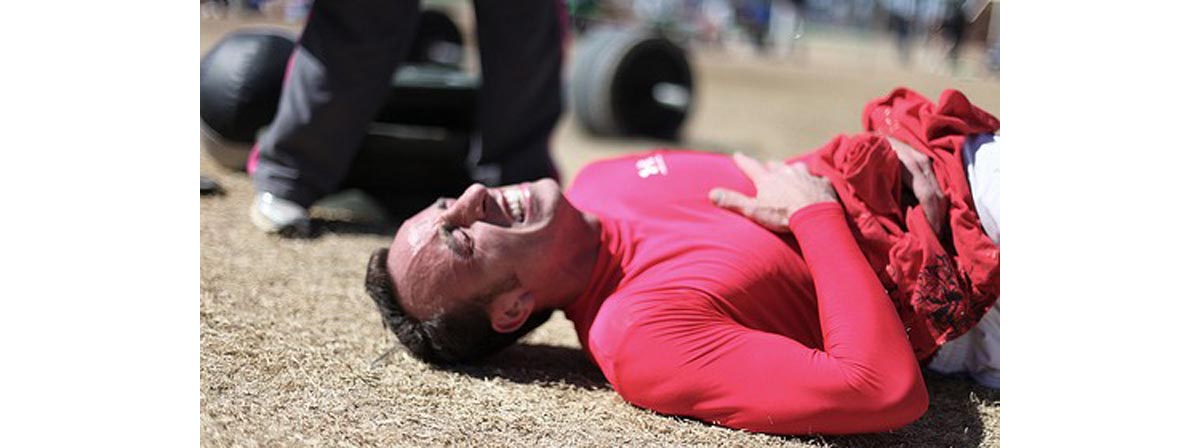Table of Contents
Now you see how difficult it is to achieve a fully overtrained state, consider what true overtraining might be.
First thing’s first, your average recreational exerciser who does half an hour on the elliptical a few times per week, maybe bench presses once or twice and occasionally follows a routine haphazardly for a few months at a time will never be overtrained.

If you’re a slightly more serious gym goer, it’s possible that you’ll achieve a state known as over reaching.
Over reaching is a very mild form of overtraining. It’s what was mentioned earlier in this article, regarding the planned few weeks of intense programming, designed to induce extreme fatigue and lethargy. For a few weeks you may feel pretty disheveled, your lifts will go down, you may pick up the odd injuries and you’ll experience joint and muscle soreness, but this will pass soon enough. Once you’re back on top form and rested up, this accumulation will actually lead to better performance, as your body adapts to such an extreme demand.
This is, of course, reliant on you taking the necessary steps to recover, such as eating enough calories and nutrients, maintaining your mobility and postural work, sleeping well and getting treatments such as sports massages or ice baths.
If you don’t recover well though, this is when you can start to look at overtraining.
True overtraining would involve a sustained period of over reaching, or perhaps several planned over reaching cycles performed back to back. Without adequate recovery, this will start to take its toll, particularly on your nervous system.
Even this may not be enough for full overtraining though. True overtraining usually requires a combination of stresses, and training alone may not provide this. You need to have other demands placed on you, such as stress at work or at home, a particularly nasty injury (which could result from prolonged over reaching,) an illness or a weakening of your immune system.
Once all these factors are in place, and stay in your life for several months, then you’re a candidate for overtraining.
This is certainly not a place where anyone, athlete or not, wants to be.
Recovery from Overtaining
It takes a long time to become overtrained, and will probably take you just as long to undo the damage again.
Rest up by taking a complete break from training – that means no competitions, no games, no lifting, no cardio, not even a body weight squat or pushup. Save all your energy for recovery.
You should also aim to relax as much as possible. Get rid of all your internal stresses and try to manage your external ones as best as you can. Speak with your boss, spouse or friends – whoever is a main cause of stress and see if you can come to a resolution to help you chill a little more.
Finally, realize that you’re not superhuman. Everyone needs a break from time to time, and as horrid as overtraining is, it might help you slow down and stay healthier in the future.
- "Does overtraining exist? An analysis of overreaching and overtraining research".
- Journal of Sports Medicine, 2004
- Accessed on August 24th 2013
- Retrieved from http://www.ncbi.nlm.nih.gov/pubmed/15571428
- Photo courtesy of CrossfitPaleoDietFitnessClasses' by Flickr : www.flickr.com/photos/crossfitpaleodietfitnessclasses/8205162633/
- Photo courtesy of Tom Woodward by Flickr : www.flickr.com/photos/bionicteaching/4423370842/


Your thoughts on this